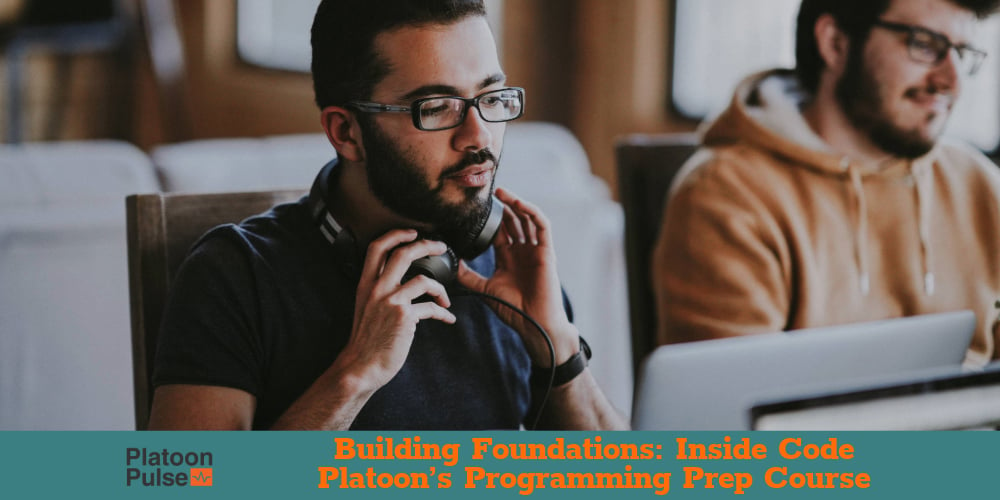Building Foundations: Inside Code Platoon’s Programming Prep Course

Transitioning from military life to a full-time coding bootcamp is daunting for Code Platoon students. Recognizing the unique challenges its incoming Veteran and military spouse students face, the organization developed Foundations of Programming (FOP), a four-week optional course offered before every Full-stack Software Engineering cohort.
Foundations of Programming is not just a preparatory step; it's a launchpad for aspiring military to software engineering students, establishing solid baseline knowledge and hands-on practice coding before the program.
“We make it our mission to ensure students have the best chance to transition into the workforce upon graduation. To better prepare incoming students for our intense curriculum, Code Platoon assigns self-paced pre-work,” says Rogelio de la Garza, Code Platoon’s Foundations of Programming Instructor and a graduate of the immersive coding bootcamp. “Unfortunately, depending on some of our students’ responsibilities, it can be difficult for them to manage the Pre-work alone. Foundations of Programming emerged to help bridge the gap.”
FOP equips accepted students with the skills they need to hit the ground running. The course covers introductory materials and previews more advanced concepts that students will learn during bootcamp.
“We double down on subjects that tend to give our students a hard time during their programs to improve success rates,” says Rogelio. "For example, introducing Data Structures and Algorithms helps them start recognizing patterns and thinking critically while writing code. This results in cleaner code and pays dividends in their future job search."
Students also gain hands-on practice with troubleshooting their code, an invaluable experience that helps counter one of their biggest initial challenges: their pride.
“When starting, students tend to be timid about asking questions or getting help. They're afraid of looking like they’re not up to speed,” says Rogelio. “Foundations of Programming helps them overcome this obstacle in a supportive learning environment. They learn that making mistakes is part of the process.”
Another benefit of the course is learning how to work as part of a team of developers—a crucial skill for software engineering students. In FOP, they practice working together and are encouraged to show their work, discuss their code, and provide each other with constructive criticism. This hands-on practice helps students who take part form a stronger group identity and better prevent burnout during their 15-week program.
“The only way to get better at coding is by coding. Incoming students can watch all our videos or read as many books as they want. But at this stage, unless they’re writing code, making mistakes, and learning from them, they won’t become better software engineers,” says Rogelio.
“We’ve found since launching Foundations of Programming that students who take the course gain a better understanding of the more complicated topics in the program curriculum. Those who take FOP retain skills from the Pre-work and understand new ones during the program better than those who don’t."



.png?width=352&name=Partner%20of%20the%20Year%202024%20(1).png)

